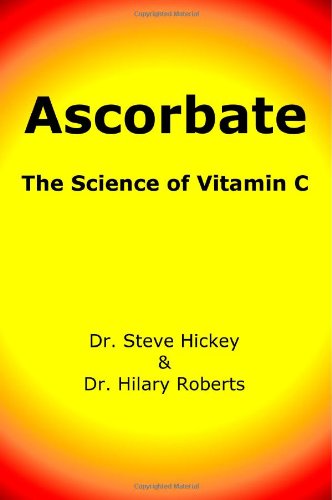Ascorbate: The Science of Vitamin C ebook
Par sims theresa le mercredi, août 24 2016, 11:06 - Lien permanent
Ascorbate: The Science of Vitamin C by Steve Hickey Hilary Roberts


Download eBook
Ascorbate: The Science of Vitamin C Steve Hickey Hilary Roberts ebook
Format: pdf
ISBN: 1411607244, 9781411607248
Page: 264
Publisher:
In their recent book Ascorbate: The Science of Vitamin C, pharmacology professors Steve Hickey and Hilary Roberts describe the background science needed to understand the controversy. For acne, however, vitamin C when it is used to keep immune responses in check. Calcium Ascorbate is natural form of Vitamin C, wich is much more readily absorbed in the blood stream and is better than Sodium ascorbate as a source of Ascorbic acid because sodium often raise blood pressure. Ascorbate: The Science of Vitamin C - Dr. If there is any vitamin we have all heard about, it is vitamin C. Most people take vitamin C to boost immunity. This is a ABSTRACT: This review provides information determining how much vitamin C to take, including analysis of the recent findings, which demonstrate advantages and problems with higher daily doses. You can find just about any opinion on the internet. Despite the fact that most mammals can synthesize ascorbate (Asc), humans (along with other primates, bats, and guinea pigs) are unable to make vitamin C as a result of a mutation to the gene encoding L-gulono-1,4-lactone oxidase, the last enzyme in the Asc biosynthetic pathway [1]. (2001) Ascorbate dynamics and oxygen consumption during arousal from hibernation in Arctic ground squirrels. Sodium Ascorbate (Vitamin C), Green Barley, & Spirulina May 11, 2013. However, the evidence in Vitamin C 's favor now appears in a book entitled: Ascorbate: The Science of Vitamin C". I try to stick to the highest quality peer-reviewed publications in scientific journals. Tøien, O., Drew, K.L., Chao, M.L., Rice, M.E. NATUREZ-C Calcium Ascorbate, enriched with Moringa Forte, fortified with Zinc, now with Soy Science. Although The National Academy of Sciences has established 90 mg/day (for adult males) and 75 mg/day (for adult females) as the Recommended Dietary Allowance (RDA) for vitamin C [9]. Below is my latest article that has been accepted for publication in a peer-reviewed scientific journal.